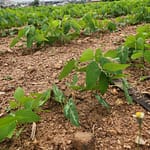In the heart of Nigeria, a silent epidemic is ravaging the lives of its people, especially its youth. Drug abuse, once hidden in the shadows, has emerged as a grim reality in Northern Nigeria. With its roots sinking deep into society, drug addiction is altering the futures of many, leaving no one untouched.
A report done by the United Nations Office in October 2022 on Drug and Crime in Nigeria indicates that 14.4% (14.3 million) of people aged between 15 and 64 years abuse drugs
LIDA Network investigated into this world of drug abuse, hearing directly from those affected and exploring the challenges faced in tackling this growing crisis.
You Might also Like: Has Journalism In Kenya Been Compromised: Departures Into Politics And Entrepreneurship
Speaking to Ahmad Yaro, Daniel Moses, and Khadija Adam – their stories paint a haunting picture of addiction.
For Ahmad, drugs became a lifeline in his early teens, and he believes it saved him multiple times. “Drug intake is my life, without it I can’t live.” Ahmad says.
“I started taking drugs when I was in Junior Secondary School (JSS)3 going to Senior Secondary School(SSS)1, I was introduced to it by my classmates and since then it has been my best friend as it saved my life, times without number. It doesn’t cause any harm to me but rather gives me joy and helps me survive” He adds.
Daniel’s journey started with a doctor’s prescription, but soon he found himself trapped by addiction to multiple drugs.“I enjoyed taking the drug because when I take it I forget all my sorrows and pains.” Daniel affirms.
“ I started taking drugs when I was 13 years old, I was sick then and the doctor prescribed a drug for me. I enjoyed taking the drug because when I take it I forget all my sorrows and pains. After my recovery I still went to pharmacies to ask for that same drug, saying a doctor prescribed it to me. Before I knew it, I became addicted to not just the drug but to three other drugs”.He adds
Khadija, introduced to drugs by her boyfriend, still finds solace in them, even after their breakup. “I never regretted my actions because I find joy in drugs and it brings me good memories.” Khadija responds.
![A woman taking overdose of drugs used to illustrate the story [Photo/Courtesy]](https://mlmkoxknobqn.i.optimole.com/w:640/h:359/q:mauto/ig:avif/https://lidanetwork.org/wp-content/uploads/2023/11/Women-drug-addiction.jpg)
“I can’t live a day without smoking or taking drugs, it was made known to me by my boyfriend who was a drug addict. At first, I hated it and hated the fact that he abused it, but in the end, I gave in easily because I couldn’t afford to lose him. I never regretted my actions because I find joy in drugs and it brings me good memories of the past life I had. Even after he broke up with me I couldn’t stop, moreover, I taught a lot of my friends, both male and female”. She adds
Drug abuse is no longer a hidden problem but an open pandemic in Northern Nigeria. Shockingly, one in every twenty adults between 15 to 64 years old is a drug abuser. Mental health issues plague one in every six, and only one in five drug abusers can access treatment. Despite efforts by the government and NGOs, the problem continues to grow.
Northern Nigeria is the second-largest consumer of drugs in the country, accounting for a staggering 36.6%. The youth are most vulnerable, as they have easier access to drugs and are easily influenced. According to the United Nations Office on Drug and Crime(UNODC), over 11% of the population are youth.
While Nigeria serves as a transshipment point for cocaine and heroin, cannabis remains the most commonly produced and consumed illicit drug. It is illegal in Nigeria, yet the country ranks as the world’s highest consumer of cannabis at 19.5%. The drug is grown in Lagos and Ibadan but finds its way to the Northern region, despite road checkpoints.
Habib Kwaro, a drug addict and seller, exposes the cunning methods used to smuggle drugs into the Northern region. Trailer tyres are emptied of air and filled with cannabis, making detection nearly impossible.
According to Habib Kwaro, “No matter how the government tries to stop the coming in of drugs to the northern part of Nigeria, they can’t as the drug dealers and lords are wiser. Kaduna state serves as a transshipment point for all drugs that come to the north, even though the government has put security checkpoints in most roads that link Lagos to Kaduna they still can’t eradicate the drugs as more drugs come in day by day.
“The new means of moving drugs to the north is with the use of trailer tyres. Air is first removed from the tyre so as to make it flat, after that cannabis is put inside it before restoring the air of the tyre and putting it back on the trailer. No uniformed person will ever suspect a trailer tyre, or will they want to remove a person’s tyre on the road just to check for contraband?” he adds.
Cannabis dealers operate in defiance of the law, often evading arrest through informants or bribes to police officers. Their stronghold is in areas like Narayi Refinery and Sabo Black Street in Kaduna, where they arm themselves against the authorities following findings by LIDA Networks staff underground investigation and evidence. The affordability of cannabis makes it the most consumed and easily accessible drug. Even secondary school students are not spared.

Cannabis is not the only drug abused in northern Nigeria and Nigeria as a whole, but it is the most commonly abused drug for it has easier channels of distribution and accessibility. Drugs like Cocaine, Heroin, Tobacco, Codeine, Amphetamine type stimulants, inhalants, and solvents such as glue and drainage are also abused in lower percentages.
Muhammad Rabi’u reveals a new method of preparing cannabis, making it even more potent. Muhammad Rabi’u disclosed this saying“ There is now a new means of preparing cannabis, not the old fashioned way that you all know. The new means of preparing cannabis is mixing cannabis with some chemicals and burying it in a refuse pit for one or two months for the chemicals to amalgamate with the cannabis. When such cannabis is harvested its color, texture, and work in the body completely changes and it tastes better”.
Cannabis is not mostly grown in Kaduna but it is relatively affordable at only 50 Naira, although there are other cheap drugs and chemicals sold undercover at pharmacies. Few drug addicts say they can’t take the chemicals in the sense that “DRUG PASS DRUG”. But at times they mix the chemicals with cannabis.
Joan Alex says “If we take shisha alone it gives us a headache because it won’t make us sleep and won’t make us high, but if we mix it with cannabis it gives a better result”.
Mallam Niga who runs a rehabilitation center in Kaduna state says that “the cases of drug addicts in northern Nigeria is increasing more than we ever expected, as some youth who have been rehabilitated often go back to taking drugs when they meet other youth who take drugs outside the rehab. These drug addicts you see aren’t normal when under the influence as they can kill, in certain cases they threaten to kill whoever leads to their arrest, and these aren’t empty threats”.
His claims were backed up by Aminu lawal, who narrated how he was stabbed with a cutlass by his friend over cannabis of 100 Naira , but he added that months after he was stabbed he went for revenge, which led to the death of his friend.
In 16th November 2023, Brig. Gen. Buba Marwa (retd.), the Chairman of the National Drug Law Enforcement Agency, inaugurated a clinic and drug rehabilitation center in Maiduguri, Borno. He mentioned that the 30-bed facility aims to provide a safe environment for clients to undergo detoxification and receive professional medical treatment. The purpose is to address the high prevalence of drug usage in Maiduguri and Nigeria as a whole.
During his visit, Marwa conducted an examination and assessment of the Borno command, emphasizing the need for a collective effort in the fight against drug abuse. He met with Governor Babagana Zulum and the Shehu of Borno, Alhaji Abubakar Ibn-Garbai El-Kanemi, who mobilized traditional institutions to join the anti-drug campaign. Marwa also engaged with various stakeholders, including religious leaders, head teachers, and officials of the Federal Neuropsychiatric Hospital, Maiduguri. He appreciated the hospital’s donation of medical beds to the rehabilitation facility, stating that it would support drug demand reduction activities
Watch the Car Manufacturer Innoson also Produces Mannequin for Selling Cloths on LIDA NETWORK
The drug abuse crisis extends beyond Nigeria’s borders. Kenya, in East Africa, faces a similar problem with a 90% increase in cannabis consumption among the youth in the past five years. According to the latest survey by Kenya’s National Authority for the Campaign Against Alcohol and Drug Abuse (NACADA), the number of Kenyans consuming bhang has increased by 90 percent in the past 5 years.
The report showed that a total of 193,430 youth aged 15 – 24 years (one in every 37) were currently using cannabis, translating to a 2.7 percent prevalence. The figure for those aged 25 – 35 years stands at 174,142 (one in every 48) translating to a 2.1 percent prevalence rate. In every 53 Kenyans aged 15 – 65 years, an approximate population of 518,807 people, are currently using the drug. The highest consumption of the drug was recorded in Nairobi with a percentage of 6.3% followed by Nyanza (2.4%) and Coast (1.9%).
Edited by Samwel Eviator and Irene David-Arinze
Produced by ZAHRA SHAGARI












